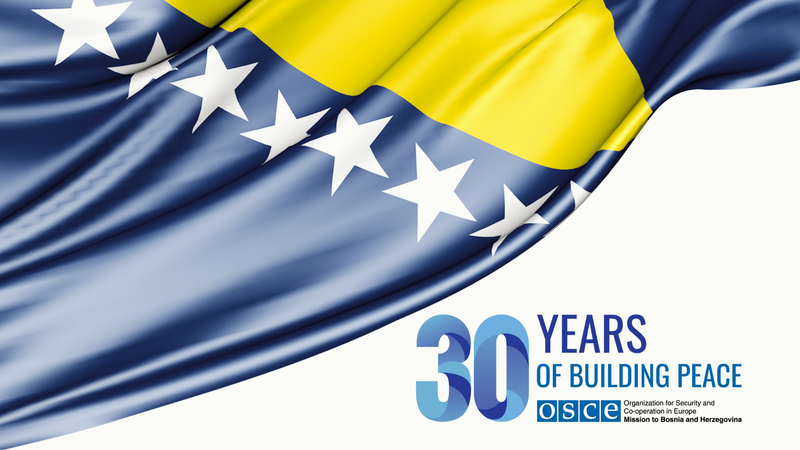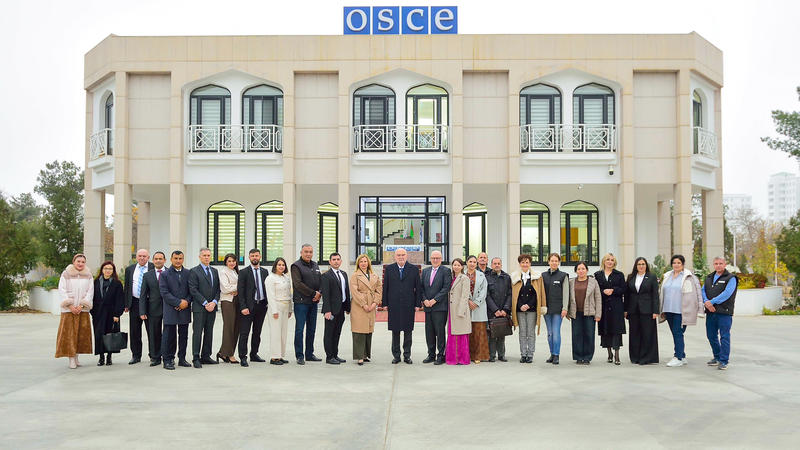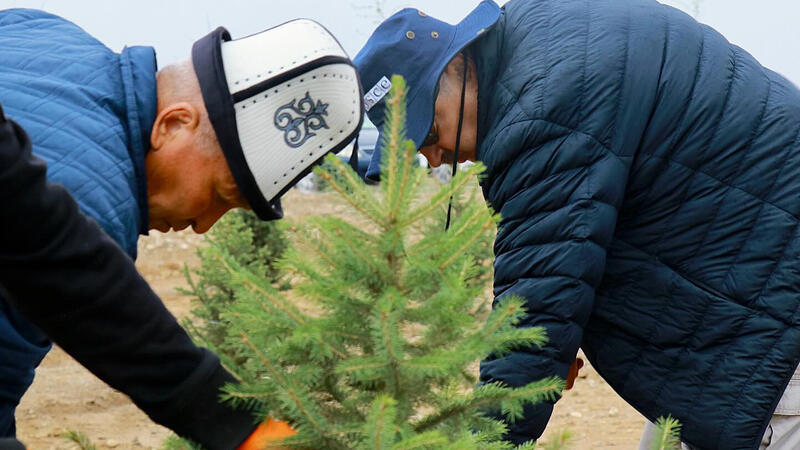-
Our work
-
Fields of work
- Arms control
- Border management
- Combating trafficking in human beings
- Conflict prevention and resolution
- Countering terrorism
- Cyber/ICT Security
- Democratization
- Economic activities
- Education
- Elections
- Environmental activities
- Gender equality
- Good governance
- Human rights
- Media freedom and development
- Migration
- National minority issues
- Policing
- Reform and co-operation in the security sector
- Roma and Sinti
- Rule of law
- Tolerance and non-discrimination
- Youth
- Field operations
- Projects
-
Meetings and conferences
- Summit meetings
- Review Conferences
- Ministerial Council meetings
- Plenary meetings of the Permanent Council
- Plenary Meetings of the Forum for Security Co-operation
- Security Review Conferences
- Annual Implementation Assessment Meetings
- Economic and Environmental Forum
- Economic and Environmental Dimension Implementation Meetings
- Human rights meetings
- Media conferences
- Cyber/ICT security conferences
- Conference of the Alliance against Trafficking in Persons
- Gender equality conferences
- Annual OSCE Mediterranean conferences
- Annual OSCE Asian conferences
- Partnerships
-
Fields of work
-
Countries
- All
-
Participating States
- Albania
- Andorra
- Armenia
- Austria
- Azerbaijan
- Belgium
- Belarus
- Bosnia and Herzegovina
- Bulgaria
- Canada
- Croatia
- Cyprus
- Czechia
- Denmark
- Estonia
- Finland
- France
- Georgia
- Germany
- Greece
- Holy See
- Hungary
- Iceland
- Ireland
- Italy
- Kazakhstan
- Kyrgyzstan
- Latvia
- Liechtenstein
- Lithuania
- Luxembourg
- Malta
- Moldova
- Monaco
- Mongolia
- Montenegro
- The Netherlands
- North Macedonia
- Norway
- Poland
- Portugal
- Romania
- Russian Federation
- San Marino
- Serbia
- Slovakia
- Slovenia
- Spain
- Sweden
- Switzerland – OSCE Chairpersonship 2026
- Tajikistan
- Türkiye
- Turkmenistan
- Ukraine
- United Kingdom
- United States of America
- Uzbekistan
- Asian Partners for Co-operation
- Mediterranean Partners for Co-operation
-
Structures and institutions
- Chairpersonship
-
Secretariat
- Secretary General
- Office of the Secretary General
- Conflict Prevention Centre
- Transnational Threats Department
- Office of the Special Representative and Co-ordinator for Combating Trafficking in Human Beings
- Office of the Co-ordinator of OSCE Economic and Environmental Activities
- Gender Issues Programme
- Opportunities for Youth
- Department of Human Resources
- Department of Management and Finance
- Office of Internal Oversight
- Documentation Centre in Prague
- Institutions
-
Field operations
- Presence in Albania
- Centre in Ashgabat
- Programme Office in Astana
- Programme Office in Bishkek
- Mission to Bosnia and Herzegovina
- Programme Office in Dushanbe
- Mission in Kosovo
- Mission to Moldova
- Mission to Montenegro
- Mission to Serbia
- Mission to Skopje
- Project Co-ordinator in Uzbekistan
- Closed field activities
- Parliamentary Assembly
- Court of Conciliation and Arbitration
- Organizational structure
- About us
Field operations

Most OSCE staff and resources are deployed in the Organization’s field operations, which have been set up with the agreement of each respective host country. The mandates of these offices are tailor-made to fit the host countries' specific circumstances and adopted by consensus of all OSCE participating States. Several field operations have their own regional or field office structure in the host country, or operate training centres.

Overview
The OSCE field operations help their host countries put OSCE commitments into practice and foster their local capacities to respond to a wide variety of challenges. Projects and initiatives to support host countries include supporting law enforcement agencies, helping ensure the respect for minority rights, legislative reform, fostering the rule of law and freedom of the media, and promoting tolerance and non-discrimination.
Several offices contribute to the OSCE’s early warning and conflict prevention function, and many field operations monitor and report on developments on the ground to the participating States, helping the OSCE to manage crises and play its critical post-conflict role.
A central role for the OSCE’s field operation work is played by the Organization’s Conflict Prevention Centre, located in the Vienna Secretariat. It co-ordinates and supports the OSCE's activities in the field and has a liaison function between the field operations. It also provides analysis and policy advice for the Secretariat and the OSCE Chairpersonship, and is generally responsible for planning the establishment, restructuring and closure of field operations.
South-Eastern Europe

Page
OSCE Presence in Albania
Established on 27 March 1997 with the mandate to promote democratization, the rule of law and human rights, and to consolidate democratic institutions.

Page
OSCE Mission to Bosnia and Herzegovina
Established on 8 December 1995, the Mission works on human rights, education, the rule of law, gender equality, governance and security co-operation.

Page
OSCE Mission in Kosovo
Set up on 1 July 1999, the Mission has its headquarters in Prishtinë/Priština and maintains five regional offices. It runs a wide array of activities.

Page
OSCE Mission to Montenegro
Established on 29 June 2006, the Mission assists Montenegro with its reform agenda and helps it further strengthen its democratic development.

Page
OSCE Mission to Serbia
The Mission, set up on 11 January 2001, is based in Belgrade and assists Serbia in building accountable democratic institutions.

Page
OSCE Mission to Skopje
Established on 18 September 1992, the Mission’s key priorities are constructive inter-ethnic relations and the 2001 Ohrid Framework Agreement.
Central Asia

Page
OSCE Centre in Ashgabat
Set up on 23 July 1998, the Centre works on a broad array of security issues, from arms control to economic-environmental topics and human rights.
Page
OSCE Programme Office in Astana
Established on 23 July 1998, the Office's work ranges from arms control and border management to economic-environmental issues and human rights.

Page
OSCE Programme Office in Bishkek
Established on 23 July 1998, the Office works in all OSCE dimensions, including the economic-environmental, human and political aspects of security.

Page
OSCE Programme Office in Dushanbe
Established on 1 December 1993, the Office works on activities ranging from arms control to disaster risk reduction, good governance and gender equality.

Page
OSCE Project Co-ordinator in Uzbekistan
Active in the country since 1 July 2006, the Co-ordinator helps strengthen legislation and build institutional capacity in Uzbekistan.
Closed field operations
OSCE field operations operate under mandates that must be regularly renewed by the Permanent Council. If renewal is not granted or if the Permanent Council decides otherwise, the operation discontinues its work.
